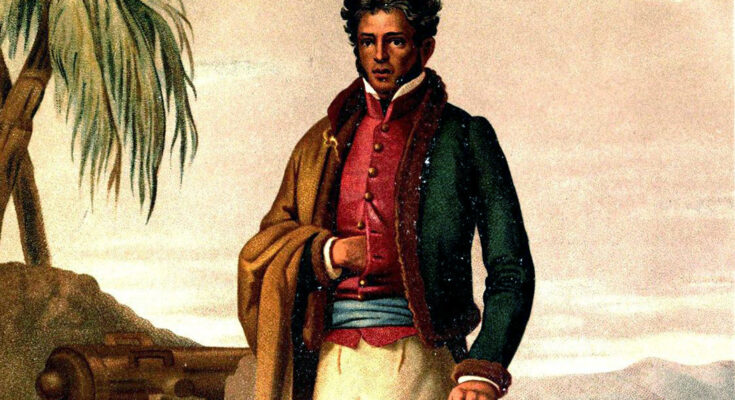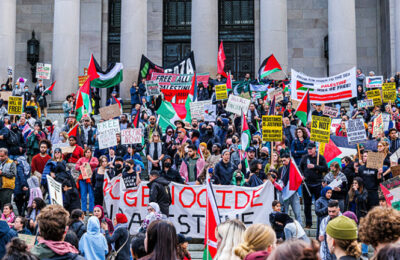This article chronicles the long overlooked role played by Afro-Mexico in the Mexican revolution for independence of 1810-1821. It will be shown that those of African heritage in Mexico had special incentives to fight, were encouraged to join the struggle, and provided many participants and leaders; in short, it will be argued that the conflict was a social revolution as well as a war for independence. Mexico’s war for independence ended a three-hundred-year rule of the country by Spain. The conquistadors were essentially profiteers with guns who drove the native population viciously in the hope of quick profits and an early retirement back in Spain. Between the overwork, the genocidal wars, and the spread of European diseases, the Indian population of Mexico dropped from nine million to three million between the landing of Hernando Cortez in 1519 and 1570. To fill the need for labor Africans were imported, an estimated 300,000 to 500,000 by 1810.(1) The Spanish devised an elaborate “caste system” to divide and conquer the people of Mexico. The war for independence ended that divisive system and only eight years later slavery was abolished in the country. The pages which follow describe the conditions facing Afro-Mexicans at the onset of the struggle and, subsequently, explore the Afro-Mexican input into the intellectual arguments of the revolution, the geographic setting which encouraged African participation, the racial composition of forces as seen through census data, the major military achievements of Afro-Mexico, its role in military leadership, the inspiration others received from Afro-Mexico, and, finally, the racial angle to the peace plan of Iguala which ended the eleven years of stalemated war and created the new nation. Notice is taken here of the scholars who in the past decade have elevated the field of Afro-Mexican Studies to a stature, where, in 1990, they could hold their first Annual Convention in Colima, Mexico. Several of them are cited in note 2 below? The new findings, when combined with previously known data, reveal ever deeper layers of Afro-Mexican involvement in the independence conflict. For instance, those of African blood comprised 15 percent of the population in the Bajio region where Father Miguel Hidalgo y Costillo launched the freedom fight which John Tutino noted in 1986. The largest guerrilla group in the area was described in 1849 by historian Lucas Alaman as mostly “mestizos and mulattos” who served under the flamboyant Albino Garcia, who kept guitarists close at hand to play him his favorite “jarabe” songs, the songs of Afro-Mexico, according to Rolando Rerez Fernandez in his 1992 study.(3) For the nation as a whole the Spanish census for 1810 showed 635,461 Afro-Mexicans in Mexico, or 10.2 percent of the total.(4) It should be noted that in 1810 Afro-Mexicans were almost all mixed-race and that their social context shared much with the “mestizos,” with whom they were often identified. Thus, assimilation of African, Indian, and European cultures was already pronounced by 1810, resulting in a consequent shortage of racial consciousness for Afro-Mexico. Nevertheless, there remained the discrimination and segregation forced upon blacks and mulattos by Spain’s racial caste system. These restrictions clearly provided an incentive to fight for the people who were the only group subject under law to chattel slavery. And although more than nine of ten Africans were free, the oppressive conditions were such that the 1753 census for Mexico City showed that 81.5 percent of the “free blacks” were house servants and that the “free mulattos” were only marginally better off.(5) In addition to the tenth of Mexico identified as African, a substantially larger percentage was passing. Gonzalo Aguirre Beltran, author or La Poblacion Negra de Mexico and patriarch of the Afro-Mexican studies field, adamantly claims that 30 percent of the 1810 population had at least some African blood. (Ted Vincent)

Flashback In History: The Blacks Who Freed Mexico: Cinco de Mayo
darudemagMay 05, 2021UncategorizedComments Off on Flashback In History: The Blacks Who Freed Mexico: Cinco de Mayo
Previous PostGrammy Award winner Ledisi honors Nina Simone
Next PostCommunity Activists Call for justice at Andrew Brown Jr.'s Funeral




